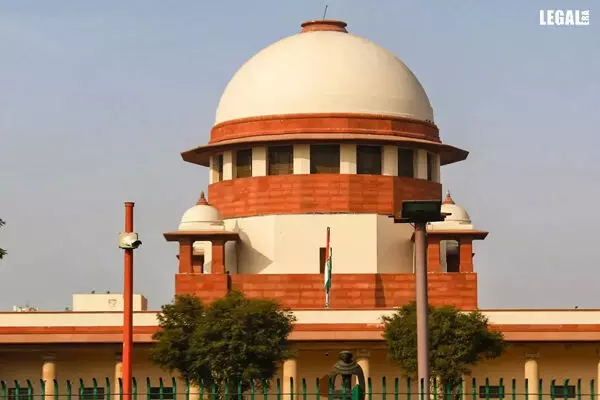- Home
- News
- Articles+
- Aerospace
- AI
- Agriculture
- Alternate Dispute Resolution
- Arbitration & Mediation
- Banking and Finance
- Bankruptcy
- Book Review
- Bribery & Corruption
- Commercial Litigation
- Competition Law
- Conference Reports
- Consumer Products
- Contract
- Corporate Governance
- Corporate Law
- Covid-19
- Cryptocurrency
- Cybersecurity
- Data Protection
- Defence
- Digital Economy
- E-commerce
- Employment Law
- Energy and Natural Resources
- Entertainment and Sports Law
- Environmental Law
- ESG
- FDI
- Food and Beverage
- Gaming
- Health Care
- IBC Diaries
- In Focus
- Inclusion & Diversity
- Insurance Law
- Intellectual Property
- International Law
- IP & Tech Era
- Know the Law
- Labour Laws
- Law & Policy and Regulation
- Litigation
- Litigation Funding
- Manufacturing
- Mergers & Acquisitions
- NFTs
- Privacy
- Private Equity
- Project Finance
- Real Estate
- Risk and Compliance
- Student Corner
- Take On Board
- Tax
- Technology Media and Telecom
- Tributes
- Viewpoint
- Zoom In
- Law Firms
- In-House
- Rankings
- E-Magazine
- Legal Era TV
- Events
- News
- Articles
- Aerospace
- AI
- Agriculture
- Alternate Dispute Resolution
- Arbitration & Mediation
- Banking and Finance
- Bankruptcy
- Book Review
- Bribery & Corruption
- Commercial Litigation
- Competition Law
- Conference Reports
- Consumer Products
- Contract
- Corporate Governance
- Corporate Law
- Covid-19
- Cryptocurrency
- Cybersecurity
- Data Protection
- Defence
- Digital Economy
- E-commerce
- Employment Law
- Energy and Natural Resources
- Entertainment and Sports Law
- Environmental Law
- ESG
- FDI
- Food and Beverage
- Gaming
- Health Care
- IBC Diaries
- In Focus
- Inclusion & Diversity
- Insurance Law
- Intellectual Property
- International Law
- IP & Tech Era
- Know the Law
- Labour Laws
- Law & Policy and Regulation
- Litigation
- Litigation Funding
- Manufacturing
- Mergers & Acquisitions
- NFTs
- Privacy
- Private Equity
- Project Finance
- Real Estate
- Risk and Compliance
- Student Corner
- Take On Board
- Tax
- Technology Media and Telecom
- Tributes
- Viewpoint
- Zoom In
- Law Firms
- In-House
- Rankings
- E-Magazine
- Legal Era TV
- Events
Supreme Court Seeks Response From MCA On NFRA's Appeal Against Delhi High Court Order on Auditor Disciplinary Action

Supreme Court Seeks Response From MCA On NFRA's Appeal Against Delhi High Court Order on Auditor Disciplinary Action
The Supreme Court issued a notice to the Ministry of Corporate Affairs and other parties in response to an appeal by the National Financial Reporting Authority (NFRA) seeking a stay on a Delhi High Court ruling that quashed its show-cause notices to auditors and chartered accountancy firms, including Deloitte Haskins & Sells LLP, over procedural lapses in initiating disciplinary proceedings.
A bench led by Chief Justice Sanjiv Khanna declined to stay the Delhi High Court’s February 7 judgment but clarified that NFRA could proceed with its disciplinary actions per the HC ruling. The court stated that while ongoing proceedings could continue, no final orders should be passed until further hearings, scheduled for April 28.
The appeal stems from the Delhi HC’s ruling, which upheld the validity of Section 132(4) of the Companies Act, 2013, granting NFRA authority to investigate chartered accountants and firms on its own or upon reference by the Centre. However, the HC found procedural flaws in NFRA's approach, ruling that the same body cannot both author an Audit Quality Review Report (AQRR) and initiate disciplinary proceedings. It emphasized the necessity of a clear separation of roles within NFRA, as mandated by the Companies Act and NFRA Rules, 2018.
The Supreme Court acknowledged the seriousness of the matter but noted that the HC’s ruling required careful examination before a stay could be granted. NFRA, in its plea, argued that the ruling, if left unaddressed, could significantly hinder ongoing disciplinary proceedings in high-profile fraud cases involving public funds.
The Delhi HC ruling had come in response to 11 petitions filed by audit firms and individual professionals, including Deloitte, challenging NFRA's structure and procedural fairness. The auditors contended that NFRA's lack of distinct divisions for audit quality reviews and disciplinary actions resulted in unfair proceedings.
While the SC has yet to decide on NFRA’s appeal, its order allows the authority to continue its disciplinary process, albeit within the framework set by the HC. Further developments are expected in the April 28 hearing.


